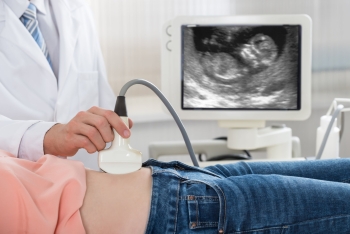
Becoming Pregnant After the Loss of a Baby: It’s an unthinkable concept to most expectant parents, but, sadly, many have walked the anguished path of pregnancy loss. Whether your pregnancy ended due to miscarriage, stillbirth, or termination for medical reasons, you may feel a desire to become pregnant again but also perhaps confused and fearful about if you can conceive, when the right time might be to have another baby, and how you will cope with the many unknowns that a subsequent (or “sub”) pregnancy might bring. It’s normal to feel anxious about the many elements of pregnancy after loss that might cause you to feel out of control, but there are ways to cope with the intense feelings that go along with this journey. Here are a few tips to help you on the way.
- It can feel tricky trying to figure out “the right time” to become pregnant again
- A sub pregnancy does not replace the baby you lost, and losing a baby doesn’t mean you won’t bond with your subsequent child.
- It may feel like you will never get through this
- There is, of course, a difference between when it’s safe to try to conceive again and when you feel ready. While you should always follow your doctor’s advice regarding when your body might be ready to carry a sub pregnancy, you may feel like you want to try to conceive as soon as possible, or you may worry that, while you want a child, you aren’t ready to be pregnant again and may never be. In the aftermath of baby loss, your feelings may also change regularly. You may want to ask yourself:
- If I get pregnant again, are there people in my support network that I can reach out to? If you have a partner, do you feel that s/he will be emotionally available to walk this path with you again, or is there some grief work that you might need to do together in order to process feelings about your pregnancy loss and how this might affect a sub pregnancy? Are you part of an online or real-life peer support group where you can talk about your feelings with others who have gone through or are going through the same thing? Are there friends or family standing by to abide with you?
- Should I be in therapy? If you don’t have a therapist, it can be helpful to find a safe space with a non-judgmental and experienced therapist who can help you objectively evaluate some of the factors that might go into the decision of timing a sub pregnancy, including any concerns you have about your ability to get pregnant, how another pregnancy might affect your overall emotional health, and the process of grieving the loss of your pregnancy.
- Some mothers fear that if they become pregnant again, they will be less faithful to the memory of the baby they lost. This fear can create guilt and anxiety, but it is often based in irrational and unrealistic thinking. Grief is a process, and it is natural for a bereaved parent to explore different ways to memorialize her lost child while simultaneously preparing to open her heart to another one. It is important to remember that you will never forget the baby you lost. That child will forever be real and exist in your life, and he or she will continue to teach you important lessons about parenting that will extend into future pregnancies. You can still grieve the baby you lost and look forward to a healthy sub pregnancy.
- It’s OK to not be excited. The process of getting pregnant can be anxiety-provoking and overwhelming, and you may not feel an overwhelming rush of excitement upon becoming pregnant. You may feel even feel a sense of dread or foreboding. This doesn’t mean that your pregnancy is “doomed”, or that you don’t want another baby. It means that you’ve been through the heartbreaking loss of a pregnancy before, and all the hopes and dreams that go along with it. You can grieve the loss of excitement you had during your first pregnancy while planning for the next, looking forward to getting through milestones like CVS testing or an anatomy scan that will get you closer to meeting your healthy baby. Not being excited does not mean you won’t bond with your living child, but it is natural to feel closed off when you become pregnant again.
- It can be overwhelming to conceive, be pregnant, lose a pregnancy, conceive and become pregnant again. Some women feel as if they’ve been pregnant, or thinking about being pregnant, for years. Take it step-by-step and focus on small tasks and achievements to get you to the next. You may wish to incorporate a daily meditation on this path to help regain a sense of control and predictability in your life. Whether you’re spiritual or not, some clients find comfort in the serenity prayer: (God), grant me the serenity to accept the things I cannot change, the courage to change the things I can, and the wisdom to know the difference. Focusing on the elements of control you have in your life: taking prenatal vitamins, getting sleep, scheduling appointments, and maintaining connection with meaningful supporters, can help you narrow in your focus on the seemingly endless months ahead.
If you choose to conceive again, know that there are resources to support you. Consider talking to an empathetic, experienced and non-judgmental clinician at The Center for Growth to accompany you on this journey. We have offices in Philadelphia PA, Mechanicsville VA, Ocean City NJ, Santa Fe NM and work with clients virtually in GA, FL, NJ, PA, VA and NM.






















